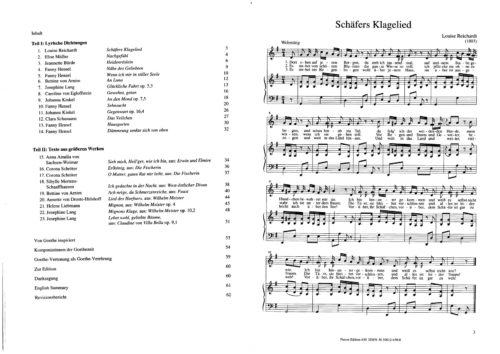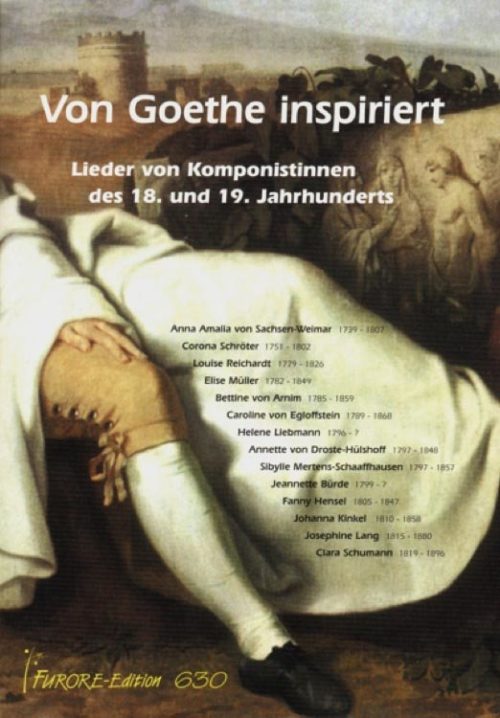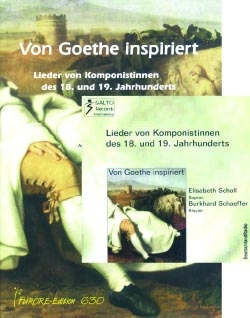The lifetime position of court singer that Corona Schröter (1751–1802) held in Weimar after 1776 allowed her artistic independence. Goethe, who had admired her earlier, arranged the appointment and was her close friend and artistic collaborator in the court theater. In the first performance of his Iphigenie auf Tauris (1779), Schröter acted the title role opposite Goethe as Orestes. She composed the music to his Singspiel Die Fischerin (1782), first performed outdoors at Tiefurt Palace, and sang the role of Dortchen, created specially for her. Her setting of “Erlkönig” from the Singspiel became the first of many settings of this popular ballad. She published this song and one additional Goethe setting in her collection of Fünf und Zwanzig Lieder (twenty-five songs; Weimar, 1786).
-


fue 6300
Inspired by Goethe. Songs by women composers of the 18.th and 19.th Centuries
Anna Amalia, Herzogin von Sachsen-Weimar Annette von Droste-Hülshoff Bettine von Arnim Caroline von Egloffstein Corona Schröter Elise Müller Fanny Hensel, geb. Mendelssohn Helene Liebmann Jeanette Bürde, geb. Milder Johanna Kinkel, gesch. Mathieux, geb. Mockel Josephine Lang Louise Reichhardt Sibylle Mertens-Schaafhausen
-

fue 9997
Music book + CD: Inspired by Goethe. Songs by women composers of the 18.th and 19.th Centuries
Anna Amalia, Herzogin von Sachsen-Weimar Annette von Droste-Hülshoff Bettine von Arnim Caroline von Egloffstein Corona Schröter Elise Müller Fanny Hensel, geb. Mendelssohn Helene Liebmann Jeanette Bürde, geb. Milder Johanna Kinkel, gesch. Mathieux, geb. Mockel Josephine Lang Louise Reichhardt Sibylle Mertens-Schaafhausen
